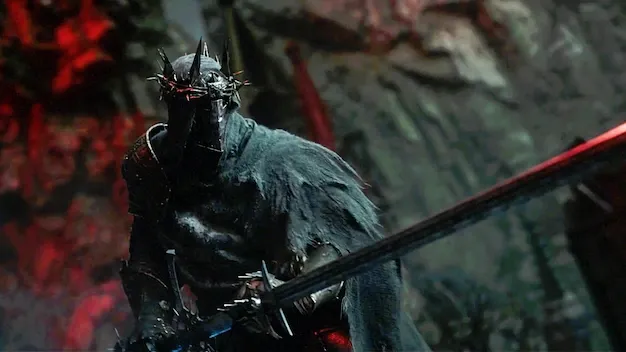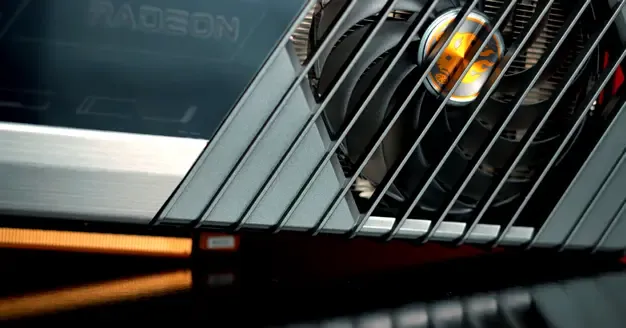What are NFT and Play to Earn games on blockchain
"Blockchain / NFT / play-to-earn games are the future of gaming!" In an era when an expensive graphics card is no longer just for playing PC games but also for mining cryptocurrencies, at a time when the Reddit team is discovering short selling and manipulating the stock market, promises of lucrative games sound tempting. The only problem is that no one can explain at the moment why such a video game medium needs it at all.
Before we start analyzing the issue, we will try to explain in layman's terms what this is all about and where exactly the excitement about NFTs and Play to Earn games lies.
Blockchain and Gaming
When we talk about blockchain games we are talking about games on blockchain technology. It is the same technology on which cryptocurrency transactions are based and is characterized by a chain of data blocks linked by cryptography. It is a system in which a record of a digital event (eg trading) is publicly distributed, transparent and immutable. This in theory eliminates the need to monitor events/activities in the blockchain, for example, it does not require a store owner to oversee any purchasing activity between users.
The application of Blockchain technology in games can be broader than the concept of trading. The decentralized nature of the blockchain may thus lead us to a future where cheating in online multiplayer games is virtually impossible. But for game publishers, blockchain technology is by far the most appealing through the idea of monetizing digital content. When game publishers say blockchain games are the future, they believe in the future of even higher earnings.
Take, for example, Electronic Arts and their FIFA football series. Games from the FIFA series are among the best-selling titles on the market. But EA does not earn a billion dollars a year from the sale of FIFA games, but from microtransactions for the Ultimate Team mode.
Fife players use real money to buy a digital object in the game - a card or a package of cards that represent playful footballers with certain statistics. The player pays for the ownership of the digital content, although this ownership is apparent because the digital content is not unique to him - the same card is owned by someone else, and he cannot do anything outside the game with the card because it is linked to his account.
This is where NFTs come into play - irreplaceable tokens that, like cryptocurrencies, are based on blockchain technology.
NFT and Gaming
NFTs are digital content that has their certificate of ownership. It can be anything digital, from a picture or sound recording to a set of textures that form a costume in a game. Of course, this ownership alone is not worth much in the digital world where everything can be easily copied, but NFTs in games are based on the idea of digital scarcity.
In translation, the value of some digital content grows the rarer the content, ie the ownership of it can be charged the more it is demanded/desired. And the higher the value of the content, the higher the commission charged for the transaction costs.
For game publishers, this looks like a jackpot because a commission is taken for each transaction, both the first and each subsequent one. And they can determine for themselves how unique, rare and desirable something will be in their game.
Play-To-Earn
So publishers are drawn to the idea of selling NFTs to players, creating digital scarcity, and then making money from every transaction of rare items among players. But where is the attraction for the player? The answer is simple: in the idea of making money through play or play-to-earn (P2E) format.
There is no need to explain why it is tempting - making money through playing is the second biggest dream after earning money without doing any work.
A player in play-to-earn games makes money by trading NFTs, ie by selling his ownership of the in-game digital content. There are other ways to make money, such as renting or investing in digital content. Some games bring in a small amount of money through just playing - the longer you play them, the higher the reward.
Such a proposition of earnings through constant activity is set so that the game would be "alive" for as long as possible and that it would always have a sufficiently active community of players. Because if there are not enough players, there is not enough demand for NFTs, and if there is no demand, then there is no profit.
This is a similar situation with multiplayer games where players do not want to spend time if their servers are half empty. Only players in the case of P2E play are not tied solely through entertainment but through investment. Some P2E games thus have a high entry fee - you have to pay a few hundred dollars to start playing.
You can pay less than that, but then you can forget about any earnings because with a lower investment in the game you won’t get far. Alternatively, there are various models of tuition, sponsorships, and loans where another well-to-do player invests in you, giving you cheaper access to the game in exchange for sharing the earnings once you start earning.
Is it risky or not?
If you invest a larger amount of money in the game or you owe someone because he put you in the game, then it is in your interest to play it as long as possible to profit from it once. It is also in your interest that this game has a large enough community in which there will be a high enough demand for buying and selling NFTs.
This is why it is often seen that players of P2E games recruit new players by inviting them to join the game - because their earnings and return on investment depend on the demand for digital content within the game. If there are not enough players who want to buy NFTs in a game, their value is practically nil.
The only difference from owning digital content or virtual currency in a classic game where the servers shut down is that NFTs will not disappear if the game fails. The player is always the owner of the NFT, and that ownership extends beyond the game itself. The game doesn’t even have to exist for a player to own the NFT of a non-existent game. We already had examples of developers selling NFTs for games running away with the money without making the promised game.
Confirmation of full ownership of NFT for dead or non-existent games can therefore be of value only to collectors. After all, today the most expensive are those copies of old games that have never been taken out of the package. It is not ruled out that NFTs could one day have just such a value.
It is true that we still do not have the true picture of the value of NFTs in games, nor will we have it for some time. It is possible that NFTs are a fad, and they may be digital wealth that will be a status symbol in some future time.
Is the play-to-earn format a risk zone for gaming, or is it a legitimate way for us all to get rich playing games soon? One thing is for sure - by playing play-to-earn games you can and will be able to make money… just like you can make money by investing in stocks or maybe betting at a bookmaker. But it will always be an investment with risk, not a guaranteed return.
Anyone who brags about making money from P2E games probably isn’t lying, but also showing others how to make money has a reason why it stands out to others instead of quietly enjoying making money through games.
Is blockchain needed at all in gaming?
As mentioned earlier, the application of blockchain in the context of video games can be broader than buying and selling digital property. There is currently no answer yet as the gaming industry is just catching up with blockchain technology and exploring its possible applications. And when we talk about buying and selling digital items, it doesn't have to be exploitative, but it can also lead to good things for the player.
For example, it would not be bad if we could legally sell purchased games in digital form without having to give up the entire user account to which those games are linked. Such a blockchain platform already exists and is called RobotCache, and offers players two benefits.
First, they can mine cryptocurrency through that platform, which they can then use to buy games on the same platform. Second, the digital games they buy can be sold to other users on the platform, for which they get 25% of the value of the actual price for the game in cryptocurrency or real money.
Unfortunately, RobotCache is only supported by smaller developers and publishing houses, and big players like Electronic Arts and Ubisoft are not competing over who will support RobotCache first because it is not in their best interest to make money if the platform is not popular. The welfare of the players here is secondary, of course.
With all the decentralization that blockchain brings, we continue to revolve around closed platforms that are essentially not significantly different from what we already have. For example, in the Steam Market, players have been selling items from games for years. Almost every game on Steam has cards that you win by playing, and you can sell for money with which you can then buy a game.
Valve has already launched his "NFT game" through the failed card title Artifact. The same Artifact was not interesting to the players because no one wanted to buy overpriced tickets for real money, so Valve was eventually forced to suspend further development of the game.
Almost everything that blockchain and NFTs offer has already existed in some form in video games. There is no great revolution here, at least not the one we can currently imagine. The only difference is that Valve invested time and money in the development of the Steam Marketplace, while others waited for the blockchain to provide them with a similar thing as a ready-made solution with the ability to set their own set of business rules.
Creating a digital scarcity in games is also not impossible without a blockchain because the developer has full control over how many items to launch into the game. Another thing is that most developers do not have the infrastructure to enable the resale of digital items for a fee.
One of the things that can be heard from NFT advocates in games is that digital content is not tied to the game so it can be used in several different games. NFT from one Call of Duty could therefore be used in another Call of Duty. Such as we do not often see in the classic game system, but again - it is not impossible or impossible without a blockchain. In the end, it all depends on the developer who would have to customize the NFT to work in multiple games. And it’s not exactly an easy job because different games use different engines.
In addition, there is not much interest in, say, characters from Call of Duty being available in Battlefield games. Fortnite is currently the only game that will feature Kratos and Lara Croft, but it is exclusively about promoting the franchise.
The players didn’t ask to play as Lara Croft at Fortnite, nor would any of the Tomb Raider fans want to play the Tomb Raider game with Lara’s skin from Fortnite.
Conclusion
Players are expected to be skeptical about the introduction of NFTs in games and the increasing incidence of blockchain games. It’s rightly a cold welcome to these things after years of facing DLCs like horse armor in Oblivion and microtransactions that destroyed the balance of games so we could get a sense of pride and achievement after a mindless grind.
The tokenization of games probably leads to an even more aggressive monetization of all segments of gameplay. As long as there is some value, there will be attempts at fraud. The fact that cryptocurrencies do not exist in physical form does not mean that they cannot be stolen.
Of course, this does not mean that we should challenge the importance of advances in technology. Blockchain technology is certainly a significant thing that will surely have useful applications in the context of games soon. At the moment, no one can say for sure which ones, but that doesn't mean there won't be any. One only needs to survive the first wave of the greed of those who suffer from an insatiable desire for unlimited earnings.
I think if playing a game becomes the level of money we can make by playing. Then the game ceases to be fun and becomes a well-known race for money.














